Geneviève de Galard, nurse who was the only French woman at the siege of Dien Bien Phu – obituary
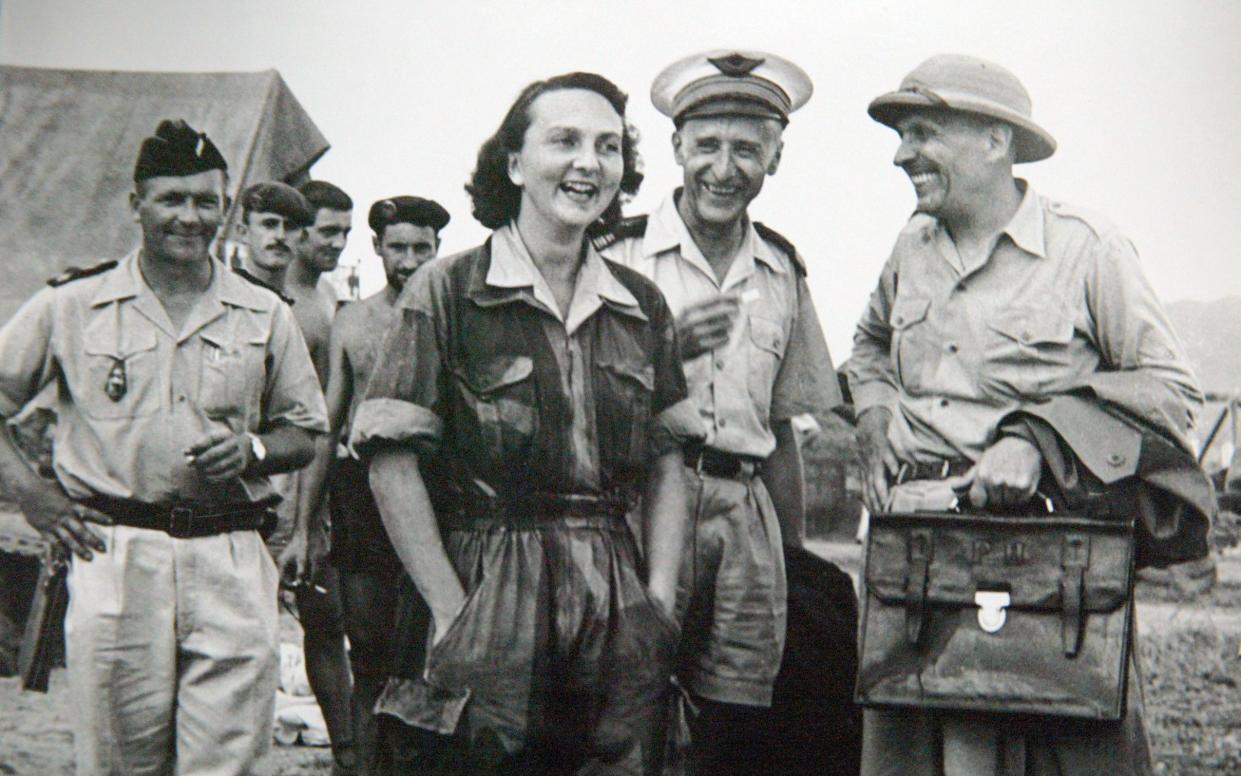
Geneviève de Galard, who has died aged 99, was a French air force nurse known as “the Angel of Dien Bien Phu”. Trapped under heavy bombardment in a valley in northern Vietnam from March 28 1954 until the French garrison’s surrender on May 7, she was the only French woman at their disastrous showdown with Ho Chi Minh’s communist troops which brought an end to France’s empire in Indochina.
Descended from the Merovingian Dukes of Gascony, and fortified by her staunch Catholic faith, Geneviève de Galard felt called to serve, as her ancestors had served in the Crusades. She saw the war in Indochina as a crusade against communism, as opposed to a “dirty war”, at root about France clinging on to its empire, which was the interpretation of Left-wing French intellectuals.
Aged 28, she already had a tour of Indochina and another of Algeria under her belt when she landed in Dien Bien Phu for the first time in January 12 1954. The valley, 11 miles long and five miles wide, carpeted with rice fields and hemmed in by high jungle, was being fortified by the French. All but inaccessible by road, it relied on its airstrip for supplies and to evacuate the wounded to Hanoi, 180 miles away.
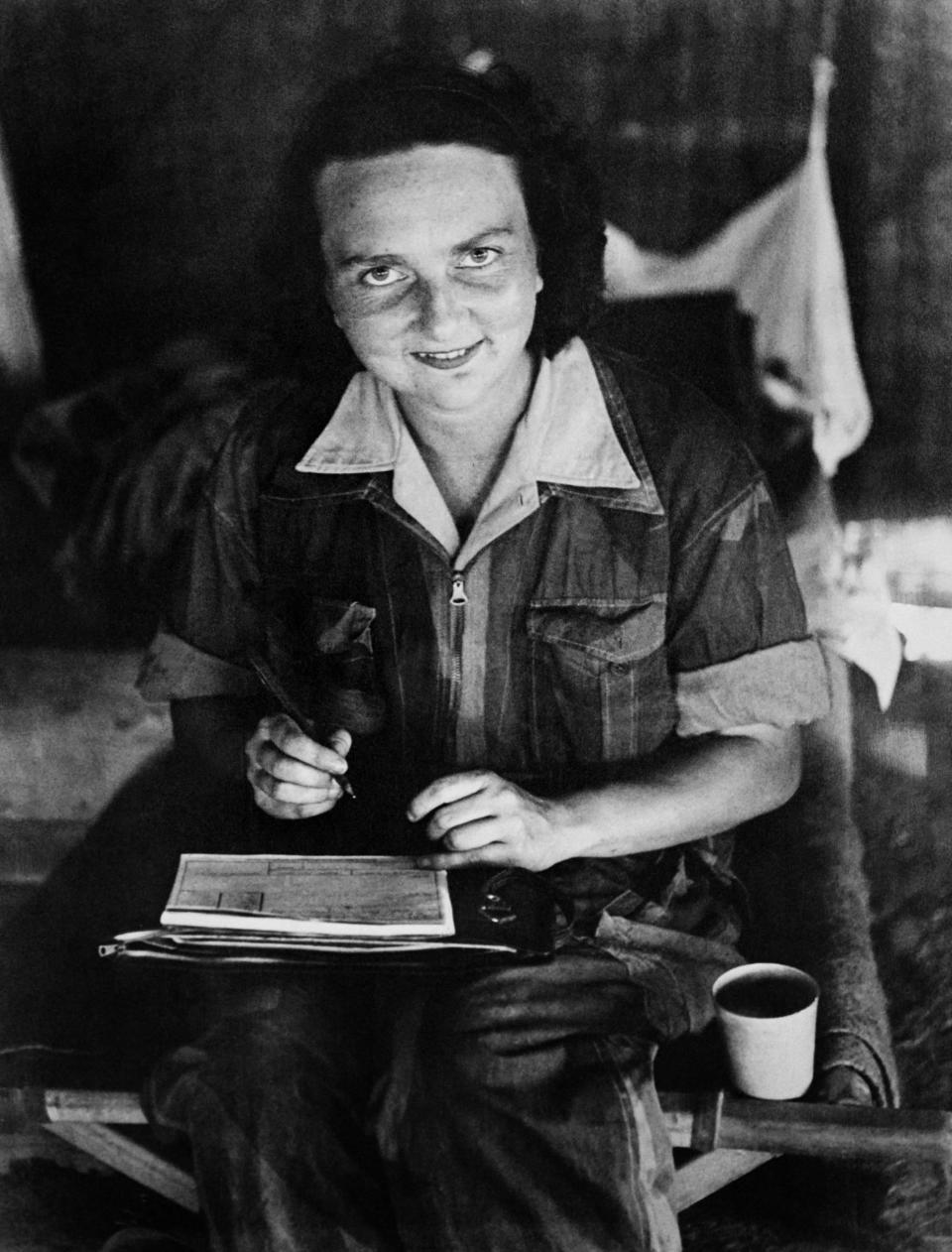
Each day, she and other flight nurses stationed in Hanoi would fly in to fetch the wounded from Dien Bien Phu, as well as from Laos and the Tonkinese delta. In the air, the IV drips would play up with each change of atmospheric pressure.
Unknown to the French, the Chinese were pouring money into the Viet Minh, led by General Giap, who had encircled the French positions at Dien Bien Phu with concealed artillery. Geneviève de Galard was on a mission in the south of Vietnam on March 13 1954 when she heard that a vast attack had been launched on Dien Bien Phu.
By March 19, there were 400 men to evacuate, and she participated in a daring nocturnal mission to land silently, in a Dakota with its engines cut, on the damaged airstrip. She was back on March 26, but the ambulances could not get to the plane before it had to take off again to escape the intense shelling.
On March 28, she landed again, on what would turn out to be the last medical plane, which the Viet Minh destroyed. After that, she was trapped in Dien Bien Phu. Airlifts became impossible and each soldier’s family was sent a cryptic telegram: “Impossible to write. All is going well.”
On March 30, a new bombardment began, far greater than before. “I felt as if it was the end of the world,” she recalled. She was nursing in the central medical bunker, hot, humid and rancid, which she likened to an underground bowel. Muddy droplets of water fell from the canvas ceiling on to the operating table.
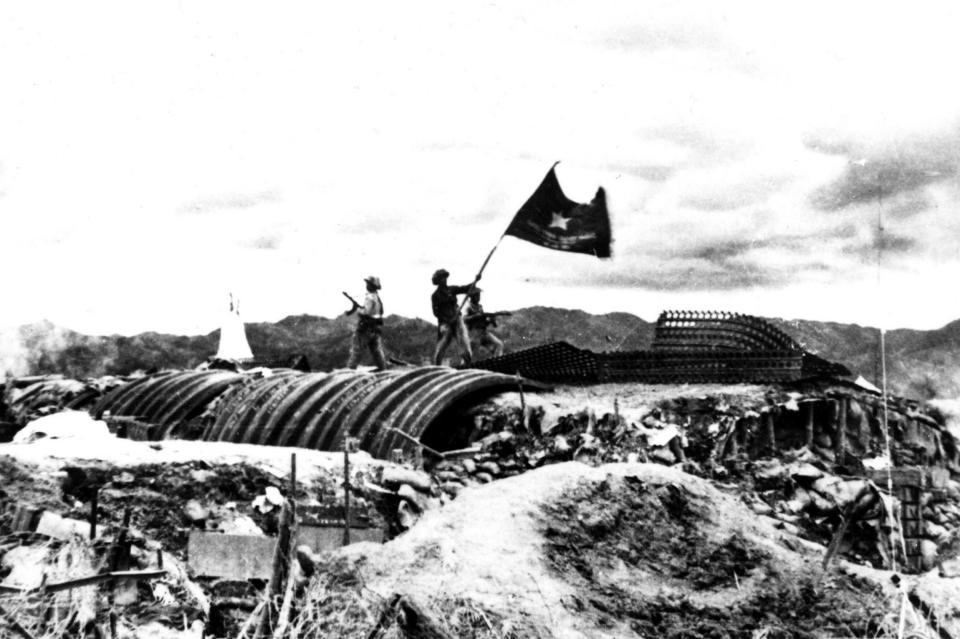
In addition to her diligence, her mere presence as the only woman at Dien Bien Phu rendered “this hell a little less inhuman”, she noticed. “Every time you walk into my room my morale goes up 100 per cent,” one paraplegic soldier told her. “You were, for many of us, a small piece of our native land,” another soldier wrote later. An American news agency offered wild sums for her exclusive memoirs.
Life continued under bombardment. At Easter, Mass was celebrated on the operating table. A triple amputee asked to take her dancing after the war. Another soldier made her a wire-and-paper flower. Although French planes could not land, they could still drop medical supplies from a height, and fresh vegetables, which Geneviève de Galard had made into soup for the wounded.
On May 6, a new kind of artillery started up. Someone told her: “That is Stalin playing the organ.” The next night, she followed the final collapse on the radio, ending with: “The Viets are 30 feet away. Give our love to our families. It is over for us.”
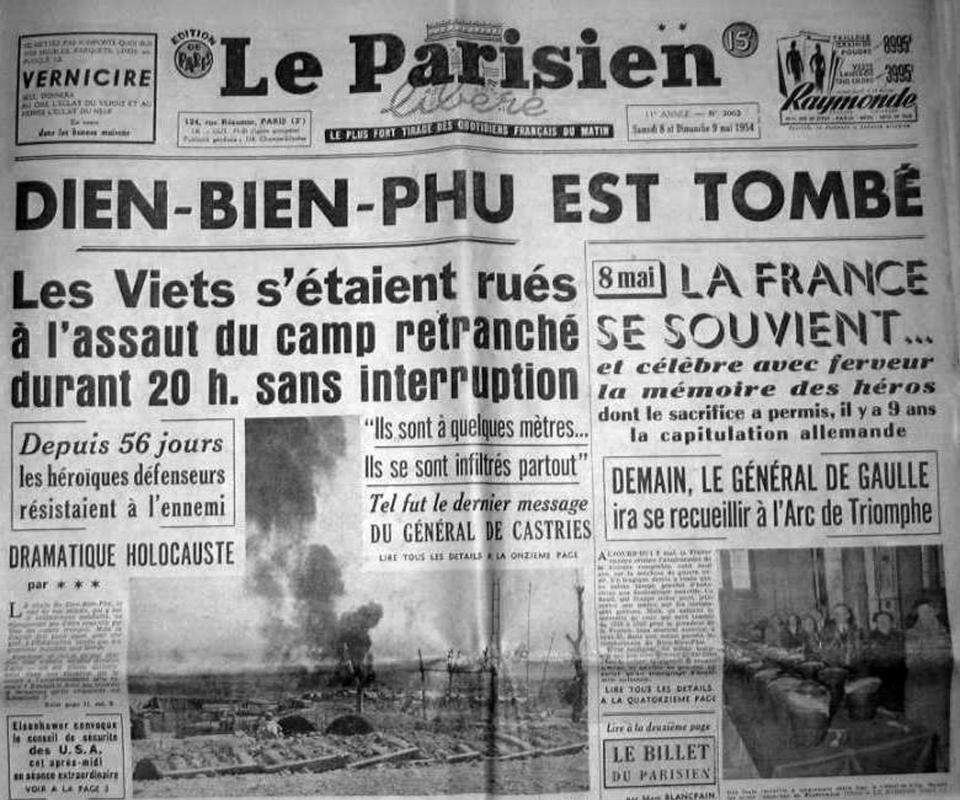
As a prisoner of the Viet Minh for 17 days, she continued to nurse but for days had no electricity, bandages, antibiotics or even urinals. The only time she was afraid, she said, was when she was pressed to write Ho Chi Minh a birthday message in return for the release of hundreds of her patients. She felt it her duty to try everything possible, but her message, heavily edited, was published by the communists and criticised in the West.
Against her will, having delayed her liberation by days to remain with her patients, she was returned to the French on May 24, suffering from beriberi, an anthrax infection and a swollen arm.
In her borrowed paratrooper’s overalls she made the cover of Paris Match, and she was hounded by paparazzi, but she found her glorification intolerable, knowing that many of her patients left behind in Dien Bien Phu had been forced on death marches. She dedicated 12 hours a day to answering letters from families of prisoners still in Indochina.
During the siege, she had been appointed to the Légion d’honneur and awarded the Croix de Guerre for her courage and sleepless hard work. Her citation called her “the pure incarnation of the heroic virtues of the French nurse”.
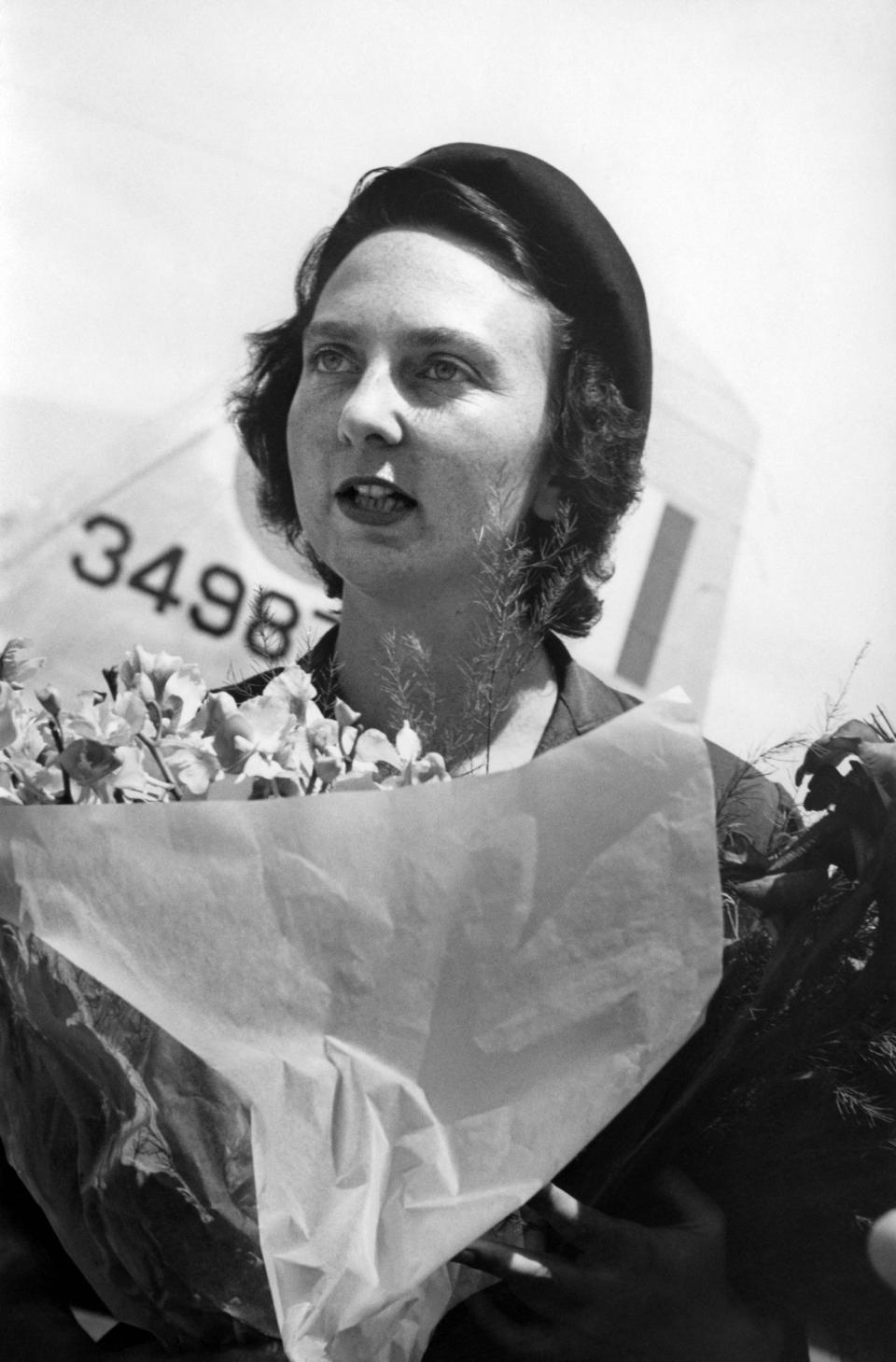
The younger of two sisters, Geneviève de Galard was born in Paris on April 13 1925, and educated by Ursuline nuns. Her father died when she was nine. During the German occupation they lived austerely in unheated rooms in Toulouse.
In 1952 she joined the “flight nurses”, as they were known, so that she could make frequent trips back to Paris, where her widowed mother was losing her sight.
After Dien Bien Phu, she was invited by an Act of Congress on an official visit to the United States, and was received in a ticker-tape parade through a crowd of 250,000 New Yorkers. President Eisenhower gave her the Medal of Freedom and called her “Woman of the Year”.
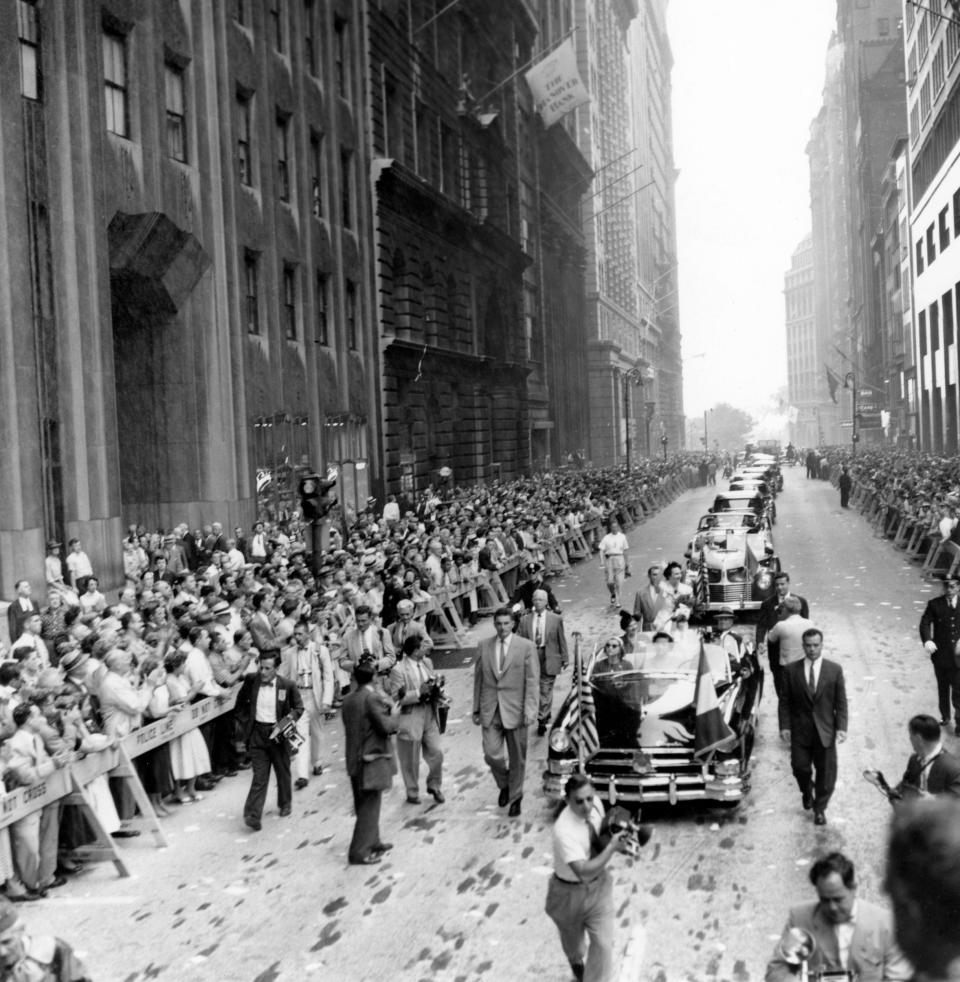
She rejoined the ranks of the flight nurses, and later worked in the rehabilitation centre of Les Invalides in Paris.
Her wartime experiences left her with “a visceral anti-totalitarian passion”, and when France took a Leftward turn in the 1980s, she entered local politics as an independent, working to integrate disabled children into schools.
In 1956 she married Jean de Heaulme, a distant cousin who had served as a commando in the hills outside Dien Bien Phu, and they had two sons and a daughter.
Geneviève de Galard, born April 13 1925, died May 30 2024

 Yahoo News
Yahoo News 
